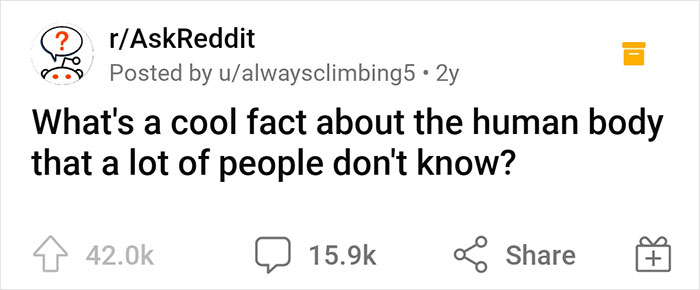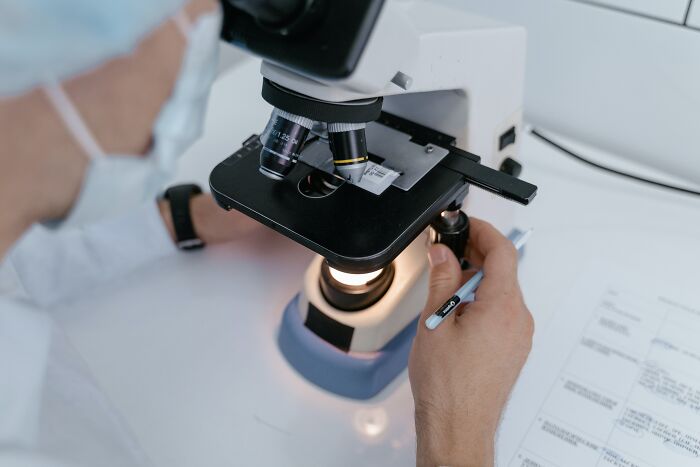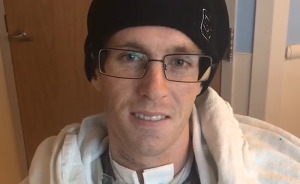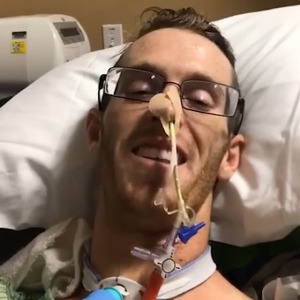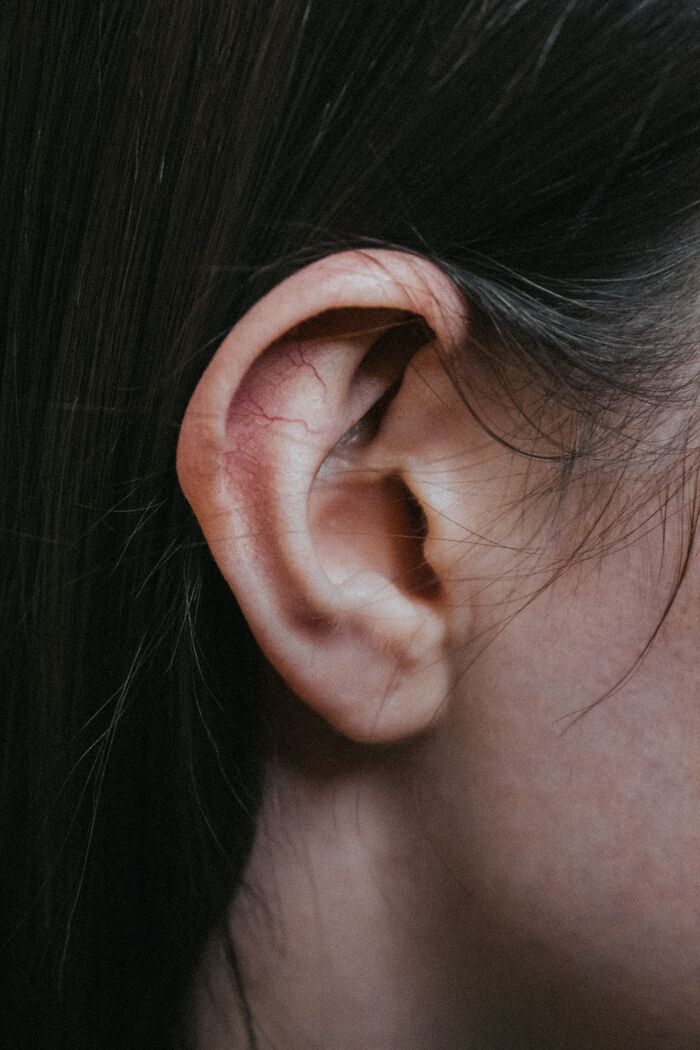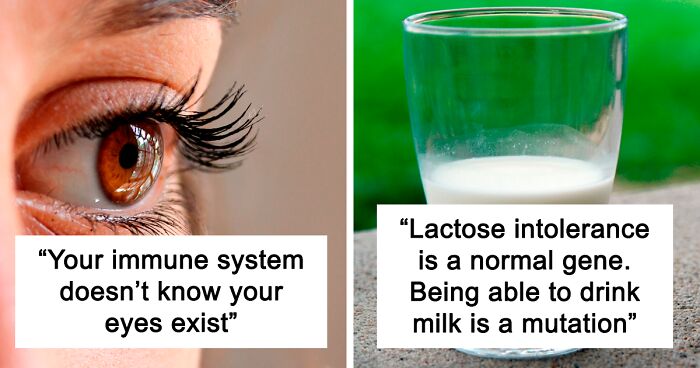
40 Cool But Pretty Disturbing Facts About The Human Body That Not Many People Know About
The human body is a crazy thing. After evolving for about 6 million years, our bodies that include 206 bones, a couple gallons of blood, around 600 muscles and much more, are capable of incredible things. We might not all be climbing Mount Everest or competing in the Olympic Games, but every single one of us has a body that is working incredibly hard to keep us alive. And while we spend our entire lives in these fascinating skin suits, many of us don’t actually have a great understanding of how they work.
That’s why one Reddit user, Alwaysclimbing5, reached out asking others to share cool facts about the human body that a lot of people don’t know. Readers chimed in with fascinating information, including anything from how we can be born with extra ribs to how sensitive our noses are to the scent of rain, so we’ve gathered the most interesting responses down below for you to read, as well as an interview with Dr. Scott Ross about some of the craziest things he knows about the human body. We hope you'll enjoy your daily dose of biology and that you learn something new about yourself while you're here. Don’t forget to upvote the facts that really blow your mind, and then if you’re interested in finding out even more about our bodies, check out this Bored Panda piece next.
This post may include affiliate links.
 Lactose intolerance is a normal gene. Being able to drink milk is a mutation.
Lactose intolerance is a normal gene. Being able to drink milk is a mutation.
How much do you know about the human body? Chances are, unless you work in the medical field, many of our bodily functions are a mystery to you. No matter how well you paid attention in freshman year biology, there is a reason why it can take over a decade to become a doctor. Our bodies are incredibly complex. Adults have more than 46 miles of nerves and over 60,000 miles of blood vessels inside of us, while our brains have about 100 billion nerve cells. Not to mention how intelligent we are and how we function based on free will and make choices in accordance with society, rather than simply following impulses without any thought process.
But as previously mentioned, our current forms took millions of years to evolve. Perfection does not happen overnight, right? Most scientists agree that there were about 15-20 different species of “early humans” before us, with Homo sapiens becoming, for the most part, how we are today about 300,000 years ago. It makes sense that during all of that time our bodies became increasingly complex, particularly our brains, but it certainly makes it hard for scientists and doctors to master their understanding of the human body today.
 5% of people never get a headache. F**k those people.
5% of people never get a headache. F**k those people.
I am part of the 5%, and I know I am lucky. But I'm super bald and I have kidney stones, so I guess things even out, all in all... :)
We reached out to Dr. Scott Ross to hear what the craziest fact he knows about the human body is. "If a person donates half his liver to a person in need, the donor's liver can regenerate to its full size in about 6 months," he told us. That's definitely something I did not know, but I'm glad I know now! We also asked Dr. Ross what makes the human body so special. "The complexity of the human body from the fertilization of the egg by the sperm to development and then the interaction of all the organ systems is truly a miracle," he told Bored Panda. "Whether it be the chemistry of food digestion, the physics of joint motion or the functioning of the human brain, every aspect of the human body is truly amazing."
Lastly, we wanted to know how much of the human body is still considered a mystery. "It is impossible to know what we don't know about the human body but suffice it to say, we continue to learn new things about the body as research and technology advances." I cannot even comprehend everything that doctors and scientists already know, so it is mind-blowing to think that their education never ends. Thankfully, it's not my job to know, so I can always go to experts like Dr. Ross to find out what's causing that strange tingling in my elbow.
 If we were an RPG character, our main stat would be endurance.
We are, by animal standards, hellishly undying and unrelenting terrors, these Terminator-esque nightmares that just DO. NOT. STOP.
So ancestrally we are persistence hunters. That is, our main tactic for catching prey without fancy weapons was to just run them down, especially in our way-back home of the African desert. You can still see it, all over the human body.
We are nearly hairless. This lack of insulation means better heat dissipation. We have a *ton* of sweat glands, next to other mammals. Again, heat dissipation. Another one is our two-legged gait - walking for us is technically just a series of controlled falls. We let gravity do half the work, and as a result use up fewer resources and generate less heat (quadrupeds, on the other hand, have to do more work with more legs).
I mean, imagine being a more-or-less gazelle of half a million years ago. You're eating, doing your thing, when this predator arrives, so you run off. Now most predators, they'll only chase for a short distance and then call it a day (watch cats, for instance). But this one... here he is again. So you run. He returns. You run again. He returns. You're getting hot - you have to stop and pant to lose heat, but he just keeps jogging. You run. He keeps coming. You're tired - you're fast, but not for very long, and this stretches your limits.
Eventually you just lay there, exhausted and heat-stunned, and this ludicrous hairless monkey just jogs on over and kills you.
That's our claws, our sharp teeth, even without our technology and tool-making. We simply don't stop.
If we were an RPG character, our main stat would be endurance.
We are, by animal standards, hellishly undying and unrelenting terrors, these Terminator-esque nightmares that just DO. NOT. STOP.
So ancestrally we are persistence hunters. That is, our main tactic for catching prey without fancy weapons was to just run them down, especially in our way-back home of the African desert. You can still see it, all over the human body.
We are nearly hairless. This lack of insulation means better heat dissipation. We have a *ton* of sweat glands, next to other mammals. Again, heat dissipation. Another one is our two-legged gait - walking for us is technically just a series of controlled falls. We let gravity do half the work, and as a result use up fewer resources and generate less heat (quadrupeds, on the other hand, have to do more work with more legs).
I mean, imagine being a more-or-less gazelle of half a million years ago. You're eating, doing your thing, when this predator arrives, so you run off. Now most predators, they'll only chase for a short distance and then call it a day (watch cats, for instance). But this one... here he is again. So you run. He returns. You run again. He returns. You're getting hot - you have to stop and pant to lose heat, but he just keeps jogging. You run. He keeps coming. You're tired - you're fast, but not for very long, and this stretches your limits.
Eventually you just lay there, exhausted and heat-stunned, and this ludicrous hairless monkey just jogs on over and kills you.
That's our claws, our sharp teeth, even without our technology and tool-making. We simply don't stop.
There are many aspects of being a human that makes us unique to other creatures, so we consulted Live Science to see what they think the top 10 traits that make humans special are. First, they mention our speech as a unique characteristic of humans. They explain that essentially, the size of our brains makes it possible for us to have a wide vocal range and precise control over our vocalizations. “In simple terms, primates with bigger cortical association areas tended to make more sounds," says Jacob Dunn, an associate professor of evolutionary biology at Anglia Ruskin University. This special feature has allowed our species to develop over 7,000 different languages.
The fact that we walk on two legs is also unique compared to many species. Having our hands free while walking makes us capable of doing multiple things at once, like using tools (or let's be honest, texting and walking). However, Live Science notes that there are downsides to this trait as well. The way our bodies evolved to walk upright has made human birth particularly dangerous compared to many other animals. Our pelvises are not made for pushing out babies with large brains, and the lumbar curve in our spines makes us prone to developing back pain.
 When you are exhausted and go to bed your body shuts down faster than usual. That 'jerk' or 'kick' that your leg makes is a signal from the brain to make sure you are not dying. Your body takes a a while to slow down to sleep but whilst exhausted your brain double checks to make sure you are still alive by sending a message from your brain to to the bottom of your body to check if your nerve sytem is still functional. This is usually a quick kick of your predominant leg.
When you are exhausted and go to bed your body shuts down faster than usual. That 'jerk' or 'kick' that your leg makes is a signal from the brain to make sure you are not dying. Your body takes a a while to slow down to sleep but whilst exhausted your brain double checks to make sure you are still alive by sending a message from your brain to to the bottom of your body to check if your nerve sytem is still functional. This is usually a quick kick of your predominant leg.
 Natural redheads require increased doses of anesthesia, due to some connection with the mutated melanocortin-1 receptor. I’m a natural redhead myself, and developed a fear of dentists because I’d always feel what they were doing!
Eventually I had an issue that couldn’t be ignored, and had to find a new dentist. At my first visit he took one look at me, and said “You’re a real redhead, huh?” “Yup.” “(Hygienist), get me 4x the novocaine!” I knew I’d found my man, and he’s been treating me ever since... also shed my fears, since dental work is much less unpleasant when you’re actually numb before they start.
Natural redheads require increased doses of anesthesia, due to some connection with the mutated melanocortin-1 receptor. I’m a natural redhead myself, and developed a fear of dentists because I’d always feel what they were doing!
Eventually I had an issue that couldn’t be ignored, and had to find a new dentist. At my first visit he took one look at me, and said “You’re a real redhead, huh?” “Yup.” “(Hygienist), get me 4x the novocaine!” I knew I’d found my man, and he’s been treating me ever since... also shed my fears, since dental work is much less unpleasant when you’re actually numb before they start.
I'm not a red head but still feel everything during a dentist appointment so i changed 7 so far. They still don't believe me when i say that thing doesn't work, never felt that numb lip or whatever
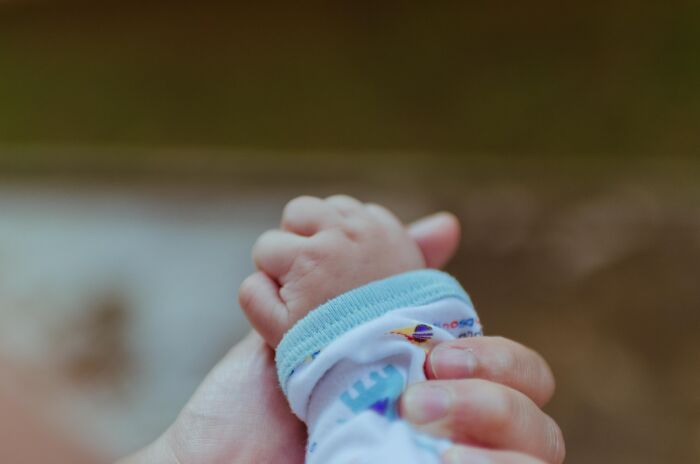 Breastmilk will produce antibodies to help baby fight off disease. It’s thought that’s babies saliva enters the nipple, mums body tests for any undesirable bacteria, then produces milk to help fight it off.
For this reason, it’s not unusual for breastmilk to look different when baby is sick. Sometimes very dark yellow and thick, almost like colostrum. It also contains different hormones depending on the time of day, and is antibacterial. It is a living liquid
Breastmilk will produce antibodies to help baby fight off disease. It’s thought that’s babies saliva enters the nipple, mums body tests for any undesirable bacteria, then produces milk to help fight it off.
For this reason, it’s not unusual for breastmilk to look different when baby is sick. Sometimes very dark yellow and thick, almost like colostrum. It also contains different hormones depending on the time of day, and is antibacterial. It is a living liquid
Compared to most other mammals, humans are also relatively hairless. I know what you might be thinking, your husband has the hairiest back you have ever seen or you believe that your legs are covered in fur. But if you compare yourself to a bear or a chimpanzee, you might be feeling smooth as silk. We used to have much more body hair, but apparently, about 2 million years ago, an adaptation caused our body hair to “miniaturize”, while another adaptation caused us to have many more sweat glands than most other mammals. Today, these adaptations make it much easier for us to cool off. So as much as you might despise returning home from a run dripping wet, know that we are lucky to have developed all of these sweat glands.
Really late but I discovered this thing during my thesis. We were researching patients with neurological problems and people who had brain injuries and we found a woman in her 30 that had had part of her brain removed. More specifically the area that activates when you move your body. Well she was moving and talking with just some minor missteps and theoretically it was not possible, she was paralyzed in the first 3 months after the operation (she was caught in a car accident if I remember correctly). We were trying out a new scanner for the brain and we found out that an area of the brain that wasn't supposed to work and control the movement was doing just that. The occipital area (usually controls the vision) was now working as a motor control area. The brain is really amazing...
Many times people's brains can reorganise and change pathways to allow them to resume funtions.
 When were in an unfamiliar environment we sleep with half our brain at a time kinda like sharks and that's why we wake up easier.
When were in an unfamiliar environment we sleep with half our brain at a time kinda like sharks and that's why we wake up easier.
 I work in an ER and a guy came in because he had non-stop hiccups for six days. Every 45 seconds or so he would hiccup. He was going insane because he couldn’t sleep or focus and had a hard time eating.
After running tons of tests and almost giving up hope on helping this guy, one of the nurses looked in his ears and found q-tip cotton stuck inside and as soon as the cotton was removed, the hiccups stopped completely.
Dude was so relieved he cried.
I work in an ER and a guy came in because he had non-stop hiccups for six days. Every 45 seconds or so he would hiccup. He was going insane because he couldn’t sleep or focus and had a hard time eating.
After running tons of tests and almost giving up hope on helping this guy, one of the nurses looked in his ears and found q-tip cotton stuck inside and as soon as the cotton was removed, the hiccups stopped completely.
Dude was so relieved he cried.
Due to our mostly “naked” bodies that are not fully covered in hair or fur, we have developed a need for clothing to keep us warm and protected from the elements. And while this is not a solely human trait, as chimpanzees have been documented wearing “necklaces” and “earrings”, those were purely for aesthetic reasons. We often need clothing to shield us from cold weather or rain and to protect our feet from being damaged on the ground. Humans are also required to wear clothing to be part of most societies. Animals don’t stigmatize the naked body, but for some reason, most humans do. Whether you agree with the requirement to wear clothing or you would rather live in a nudist colony, it is certainly one more way that humans stand out from the pack.
 When we get sunburn, that's not the heat of the sun that's hurting us most of the time, but it's little skin cells killing themselves to protect us from skin cancer.
Not so cool if I think about it.
When we get sunburn, that's not the heat of the sun that's hurting us most of the time, but it's little skin cells killing themselves to protect us from skin cancer.
Not so cool if I think about it.
Folks: protect yourself from the sun! I thought it could never happen to me, but it did: basal cell carcinoma, a little star-shaped wound on my forehead that never seemed to heal. While looking through old photos, I suddenly realized it had been there for 3 years! I named it "Spot".
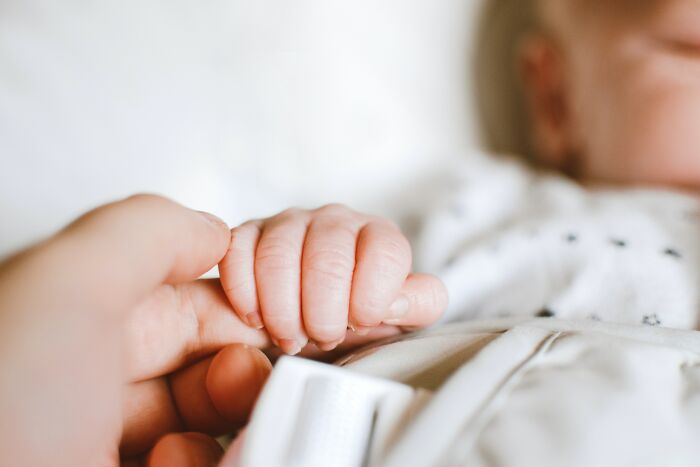 Archaeologist here.
You can give birth after you've died.
Occasionally we will come across a really confronting burial where the skeleton of an unborn child is halfway through its mothers pelvis. Generally what happens is the woman has died before giving birth and after burial a build up of gasses from decomposition forces the baby out. We refer to this as "coffin birth".
Archaeologist here.
You can give birth after you've died.
Occasionally we will come across a really confronting burial where the skeleton of an unborn child is halfway through its mothers pelvis. Generally what happens is the woman has died before giving birth and after burial a build up of gasses from decomposition forces the baby out. We refer to this as "coffin birth".
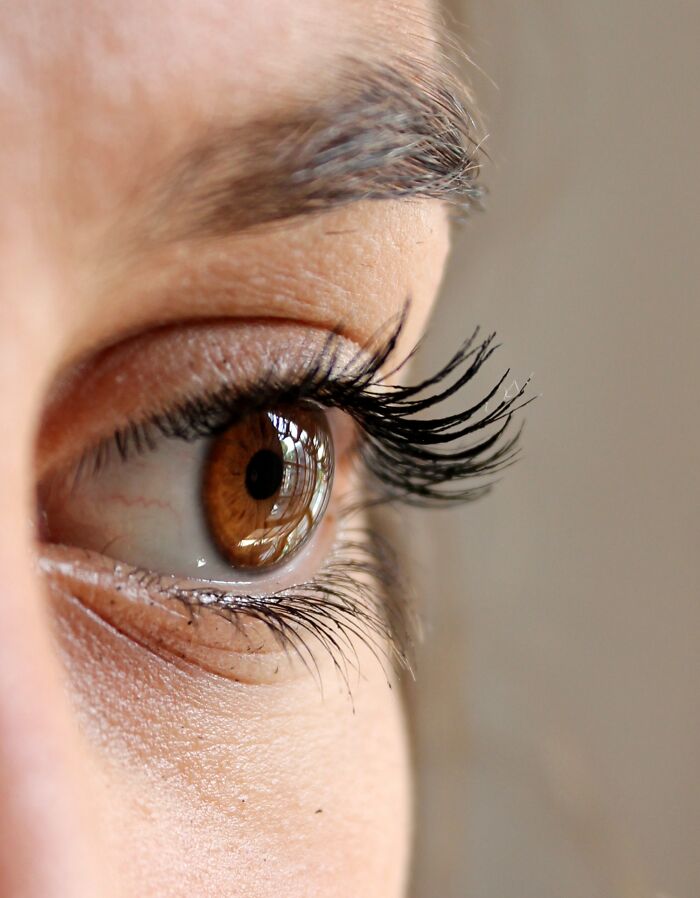 Eye immune privilege: Your immune system doesn't know your eyes exist. Theres a chance that if you get an eye injury or an infection near your eyes the immune system will think your eyes are a foreign body and you'll go blind.
Eye immune privilege: Your immune system doesn't know your eyes exist. Theres a chance that if you get an eye injury or an infection near your eyes the immune system will think your eyes are a foreign body and you'll go blind.
Not able to sleep tonight after reading such horror stories about the human body.
One of the most special things about the human body is our famously overdeveloped cerebral cortex. It makes up over 80% of our brain’s mass and allows us to use complex, higher level thinking skills, such as making decisions, executive control, emotional regulation and using speech. Our amazing brains are responsible for only 2% of our total body weight, but they use up more than a quarter of our body’s energy. And although we don’t have the largest brains in the world, that would be sperm whales with brains weighing up to 20 pounds or 9 kilograms, we do have the most impressive brains. With our complex reasoning abilities and intricate societies, we are definitely among the most intelligent species.
The bone that supports your eyeball, called the orbital floor, is paper thin and has a large empty cavity, called the maxillary sinus, on the opposite side. When you get hit hard in the eyeball, instead of your eyeball itself rupturing, the bone underneath your eye breaks, which is called an orbital floor fracture. This releases the pressure from the impact and saves your eyeball. If you crush a beachball against a concrete wall, you can pop it, but if you try crush it against a styrofoam wall, the wall breaks but the beachball is fine. An amazing evolutionary adaptation to protect your eyesight.
Who here read the word "eyeball" and immediately noped out of that paragraph?
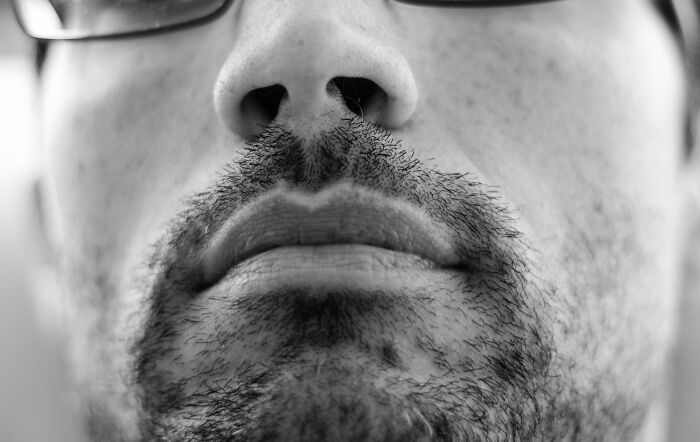 You mostly breathe out of one nostril at a time, and the ‘dominant’ nostril switches every hour or so.
You mostly breathe out of one nostril at a time, and the ‘dominant’ nostril switches every hour or so.
Nostril conscious😄. Now there's a phrase you don't hear every day!😹
Load More Replies...You can actually trigger the shift if you're laying in bed on your side. The "top" nostril will open up within a few minutes, and the lower one will close. Turn on your other side, and within a few minutes it'll change again. Try it out tonight 🤪
Is that what it is? I just thought it was snot running down hill
Load More Replies...For me one side is always blocked off. I wouldn’t be able to breathe through my nose if I pinched it, I am a mouth breather a lot. I feel shame.
I became aware of this after a particularly savage 2 week illness. I was convinced my sinuses were forever broken.
Mouth Breathers! Good news for some of you folx. Place your tongue on the roof of your mouth and begin breathing through your noses. (Roof? Shouldn't it be ceiling?)
I know about this because I sleep on my side. When the nostril changes, I have to change sides. It's hard when my body wants to sleep on the right, but the nose wants to breathe through the left.
I've had my nose broken four times, I don't think I have a dominant nostril anymore.
My daughter told me this but I didn't believe her, but she was right (and I congratulated her and learned something new(.
So noticeable when you have a cold. It's always the wrong stupid nostril that's unblocked.
Right now it's my right one and I'll be focusing too hard for a while on my nose.
One of the instructors told us this at a health seminar and I thought she was yoga/vegan/alternative fluffhead and was completely full of s**t. Then I looked it up and learned she was correct.
Since no one is citing data and, and since I can feel air moving in or out both nostrils when I breath, I don't believe this is true. Folks, there is no physical flap closing off one side. Don't believe everything you read
 You just need to focus on the time you want to wake up and our hypothalamus would wake us up at the exact same time.
You just need to focus on the time you want to wake up and our hypothalamus would wake us up at the exact same time.
Another feature of the human body you might want to give yourself a hand for developing is, well, your hands. We may not be the only species that has opposable thumbs, as most primates do, but our thumbs are particularly large. It is unique that we can bring our thumbs all the way across the palm of our hands, which makes it much easier for us to pick up objects than most other primates. We also have impressive muscle control in our hands, allowing us to write precisely, play sports with accuracy, provide excellent massages and create amazing visual art. We are actually pretty lucky to have such versatile hands. I'd like to see a monkey type this paragraph or play the piano!
 Women are actually programmed to forget the pain of child birth after a few months or so. If this didn’t happen, most women would only end up having one child, which would eventually lower the population.
Women are actually programmed to forget the pain of child birth after a few months or so. If this didn’t happen, most women would only end up having one child, which would eventually lower the population.
I think we're unable to physically remember ANY kind of pain - we're just thinking, yeah, that hurt me badly back then, but cannot re-live actual pain.
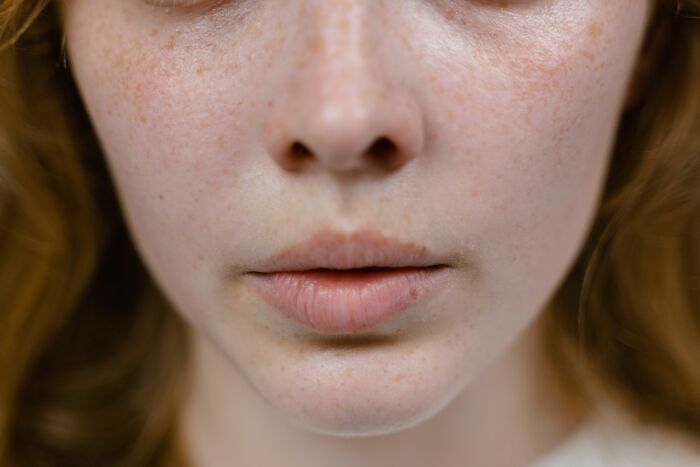 You can see your nose all the time, your brain just chooses to ignore it.
You can see your nose all the time, your brain just chooses to ignore it.
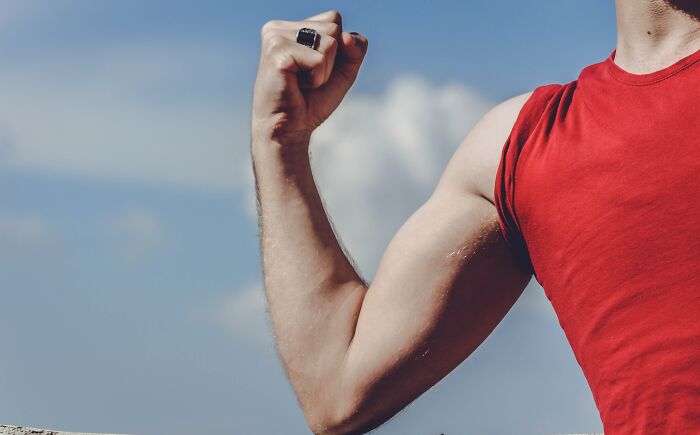 We have an internal regulator that prevents us from using our full strengh. Or muscles usually only work at about 60% max of what we are capable off.
In extreme life and death situations these regulators stop and we are able to use our full strengh. This is how the parts where people tipped over cars and similar come from.
These regulators are because at full strengh we heavily damage our bodies. Essentially, you could lift something to the point where it is either lifted or your arm just breaks instead. I believe there has also been someone who ran so hard his leg broke.
We have an internal regulator that prevents us from using our full strengh. Or muscles usually only work at about 60% max of what we are capable off.
In extreme life and death situations these regulators stop and we are able to use our full strengh. This is how the parts where people tipped over cars and similar come from.
These regulators are because at full strengh we heavily damage our bodies. Essentially, you could lift something to the point where it is either lifted or your arm just breaks instead. I believe there has also been someone who ran so hard his leg broke.
My internal regulator only allows me to go around the block when it comes to exercise.... LOL
The ability to blush is also a uniquely human characteristic. Darwin referred to blushing as “the most peculiar and the most human of all expressions”, but perhaps he never had someone tell his crush that he liked them in middle school. Nothing peculiar about the reaction of blushing then; it felt like a perfectly appropriate response in my opinion… But there is a theory that blushing was developed as an evolutionary response to acknowledge a mistake or embarrassment without having to address it verbally. “A prerequisite for embarrassment is to be able to feel how others feel — you have to be empathetic, intelligent to the social situation," says Ray Crozier, an honorary professor at Cardiff University’s School of Social Sciences. If the person you’re talking to can see that you are clearly aware of your mistake, there is no need to bring it up. I only wish everyone was polite enough to take blushing as a silent signal, rather than commenting, “Wow, you look really red!”
If you lose a hand and then have it reattached, even if all the feeling and movement ability comes back, your skin on that hand will never get wrinkly in water again. It's lost the ability to do so. Also, the reason our hands get wrinkly after too long in water is to give us more grip on slippery surfaces.
Okay. I must confess that I doubted this one so I did a quick Google research session and TIL that it is correct. Thank you BP! https://www.scientificamerican.com/article/why-do-our-fingers-and-toes-wrinkle-during-a-bath/
Your liver can regenerate, and much faster than you think. I had a quarter of my liver removed, and a month later it was back.
A small percentage of people are "Super Sleepers" and are fully recharged after 2 to 4 hours of sleep each night. They get to burn the candle at both ends!
I envy that because I need at least 8 hours to fully recharge to be my optimum best.
Something else that is fascinating about being a human is our long childhoods. While some other species have long lifespans like Asian elephants and blue-and-gold macaws, we are special in the way that it takes us so long to mature. Our childhoods are twice as long as chimpanzees, and even earlier versions of humans reached adulthood faster than we do today. There are several possible explanations for this, including the size of our brains and our long lifespans.
According to Associate Professor of Psychology Suzana Herculano-Houzel at Vanderbilt University, “It makes sense that the more neurons you have in the cortex, the longer it should take a species to reach that point where it's not only physiologically mature, but also mentally capable of being independent. The delay also gives those species with more cortical neurons more time to learn from experience, as they interact with the environment." I sometimes envy kids for their freedom and lack of responsibilities, so I am feeling really lucky right now that I'm a human. At least I got 17 years to enjoy being a kid, rather than a measly 3!
 Your heart rate increases about a minute before partaking in exercise. It is known as the anticipatory rise and happens involuntarily.
Your heart rate increases about a minute before partaking in exercise. It is known as the anticipatory rise and happens involuntarily.
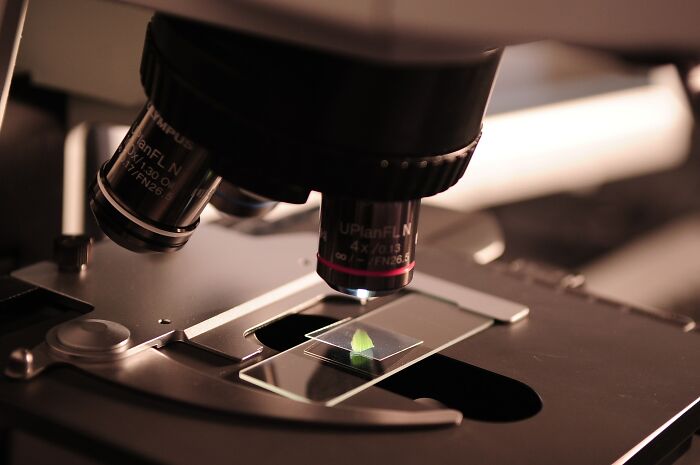 The microscopic mites living on your face feeding off the oil glands.
You can't see them, but they're there. They are microscopic mites, eight-legged creatures rather like spiders. Almost every human being has them. They spend their entire lives on our faces, where they eat, mate and finally die.
There are two species of mite that live on your face: Demodex folliculorum and D. brevis.
It's cool cause that means I'll always have some friends with me.
The microscopic mites living on your face feeding off the oil glands.
You can't see them, but they're there. They are microscopic mites, eight-legged creatures rather like spiders. Almost every human being has them. They spend their entire lives on our faces, where they eat, mate and finally die.
There are two species of mite that live on your face: Demodex folliculorum and D. brevis.
It's cool cause that means I'll always have some friends with me.
Blind people process Braille in their visual cortex. Amazing example of neuroplasticity.
Humans, particularly females, are also very fortunate to have long lives after giving birth, without being expected to create more babies until they die. It is common for mammals to keep populating until they simply can’t go on, and even many species of octopuses die once they have mated and ensured their eggs would survive. But giving birth as a human is not supposed to be a death sentence. Of course, it can be in tragic cases, but most mothers get to live for many decades after having kids. Having kids is considered the beginning of many people’s lives, for individuals who view raising a family as their greatest dream. We are quite a lucky species because so many of us get to grow up with grandparents, sometimes even great-grandparents.
When you first set your sight on the seconds of a watch (or anything with a rapid regular movement) you will sometimes feel like the first second lasts a little bit too long. It's because your brain replaces the motion blur that happens when you moved your sight from wherever it was to the watch with a fixed image. And the cool thing is that it replaces it "after the fact", or rather gives you a very short false memory that you were already watching the watch while your eyes were moving, making that first second seem longer. It's called Chronostasis.
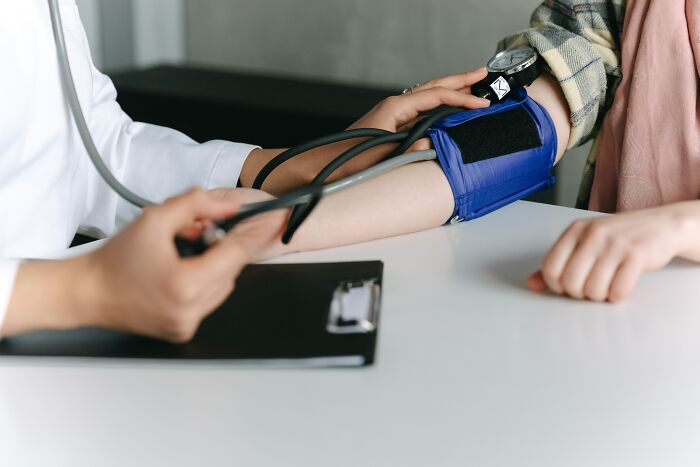 Some humans do not feel any pain and have to be closely monitored because they can get sick/injured so easily and not even realize.
Some humans do not feel any pain and have to be closely monitored because they can get sick/injured so easily and not even realize.
When you're a baby you have several defence mechanisms that stop you from drowning: you reflexively hold your breath when underwater and your heart rate and consumption of oxygen decreases, allowing you to last significantly longer underwater than an adult.
That automatic breath holding is called the Mammalian Dive Reflex (MDR).
While we tend to view ourselves as completely different from animals, the reality is that we just evolved in a different way. Our bodies are so special and incredible, and we are lucky to have complicated enough brains to have some level of understanding about how they work. We hope you're enjoying this list of fun facts about your body. Be sure to keep upvoting all of the facts that blow your mind, and let us know in the comments if you have any other little-known facts about humans that you would like to share. I'm sure it's been a long time since many of us have taken biology, and we would love to have a better understanding of ourselves.
A baby's body has about 300 bones at birth. These eventually fuse (grow together) to form the 206 bones that adults have
Your hands and feet alone account for more than half of all the bones in your body (106/206)
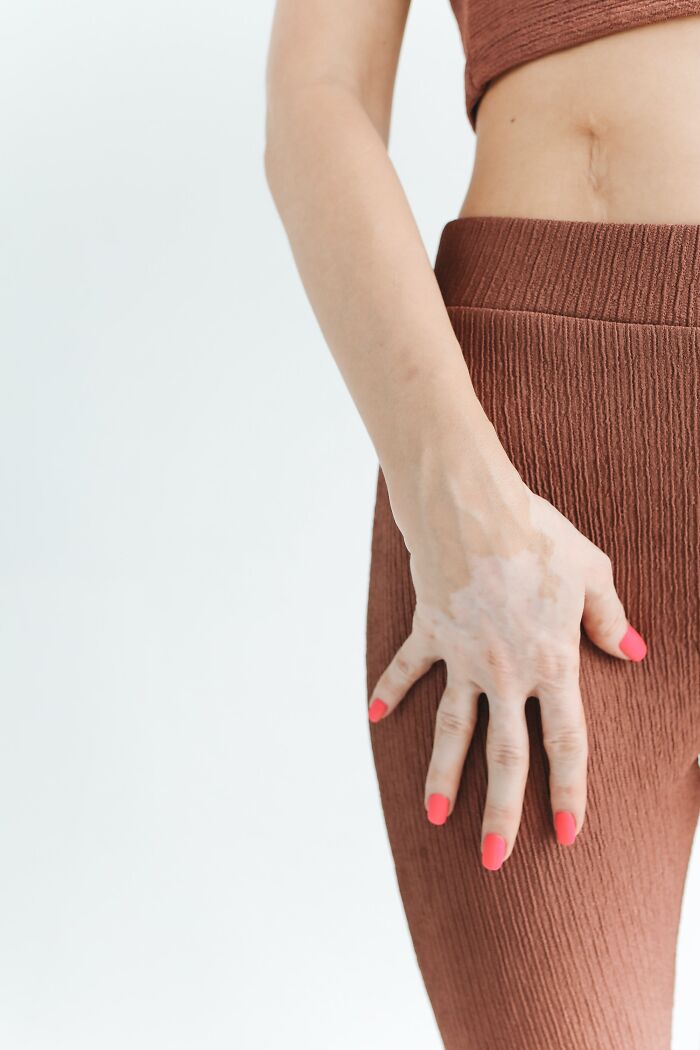 The femur is stronger than steel and concrete.
The femur is stronger than steel and concrete.
 Cutting the corpus callosum ( connects two brain hemispheres) can produce some freaky results. Such as your hand doing s**t that your conscious mind isn't aware of, writing a sentence or scratching an itch without knowing for instance.
Cutting the corpus callosum ( connects two brain hemispheres) can produce some freaky results. Such as your hand doing s**t that your conscious mind isn't aware of, writing a sentence or scratching an itch without knowing for instance.
There was a case where this was done to treat severe epilepsy. After the person reported they would be buttoning their shirt and the other hand would be unbuttoning it at the same time.
 Amniotic fluid is mostly baby urine.
Amniotic fluid is mostly baby urine.
 You're taller in the morning than the rest of the day/night.
You're taller in the morning than the rest of the day/night.
That's because my body has forgotten how much easier it is to slouch yet.
Babies don't have full color vision until 5 months old!
Which is why, for very young babies, books and other media with black and white or other high contrast pictures are better than pastel, pretty ones - they can't really see the pastel pictures. Even after 5 months, strong colours with clearly delineated edges are better - they help babies develop focussing skills. Save Beatrix Potter etc until they are at least a year old!
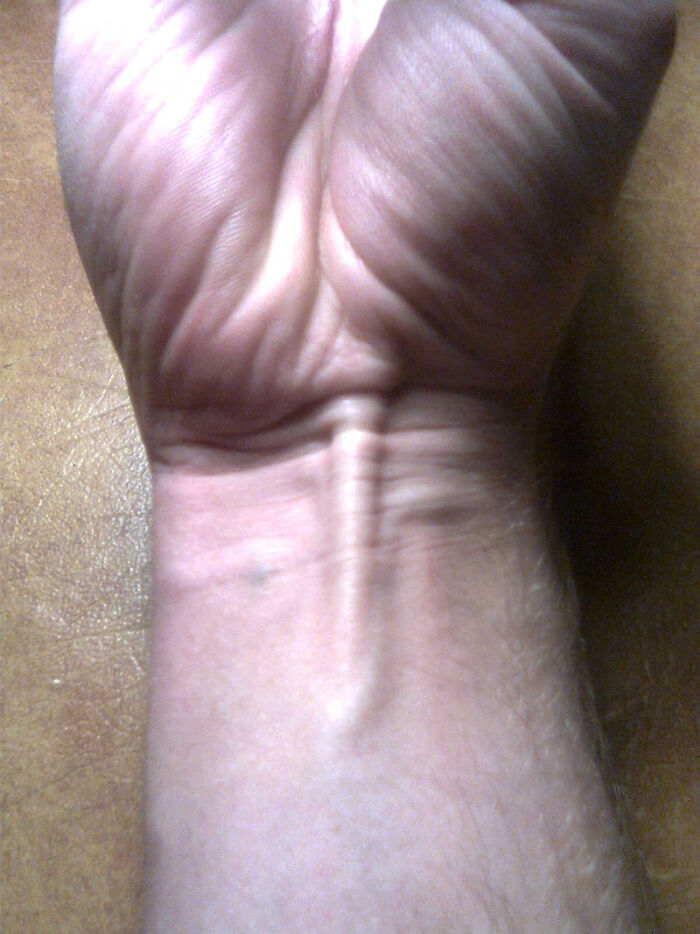 There is a muscle, called palmaris longus, in the forearm missing in about 10% of the population. You can easy test if you have it by putting your pinky and thumb together, while holding your palm facing up, and flex the hand upwards. If 1 tendon is standing out more than the others that's palmaris longus.
There is a muscle, called palmaris longus, in the forearm missing in about 10% of the population. You can easy test if you have it by putting your pinky and thumb together, while holding your palm facing up, and flex the hand upwards. If 1 tendon is standing out more than the others that's palmaris longus.
I'm in the top 10% of something finally! Why couldn't it have been something like highest lotto winners or richest people in the world?
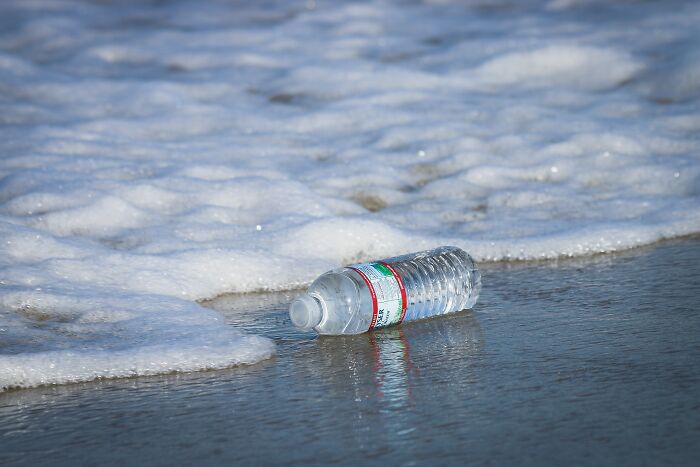 We have a bunch of microplastics in our body.
We have a bunch of microplastics in our body.
dont we consume a credit card a week of microplastics? Could it be one of the reasons of all our infertility?
 The war that's constantly happening inside of you.
Everyone knows about your immune system but the sheer complexity of it is amazing. Like, your body has neutrophils which are like the generic white blood cell that constantly goes around your blood vessels seeking out foreign objects, but did you know there are cells called macrophages which are like way better neutrophils in the fact that neutrophils mostly swallow bacteria to kill them, macrophages do this too except they can swallow close to 100.
You have stuff like dendritic cells whose main goal is to be an early warning system, they swallow an invader then carry a piece of it back to T cells to activate them. Once they're activated, T cells swarm that specific invader and kill anything that has that antigen.
I didn't even name close to all of the cells that are doing constant battle inside of you 24/7 365 days a year. So next time you have the flu or an infection, think of the little guys inside you who gladly fight the good fight
The war that's constantly happening inside of you.
Everyone knows about your immune system but the sheer complexity of it is amazing. Like, your body has neutrophils which are like the generic white blood cell that constantly goes around your blood vessels seeking out foreign objects, but did you know there are cells called macrophages which are like way better neutrophils in the fact that neutrophils mostly swallow bacteria to kill them, macrophages do this too except they can swallow close to 100.
You have stuff like dendritic cells whose main goal is to be an early warning system, they swallow an invader then carry a piece of it back to T cells to activate them. Once they're activated, T cells swarm that specific invader and kill anything that has that antigen.
I didn't even name close to all of the cells that are doing constant battle inside of you 24/7 365 days a year. So next time you have the flu or an infection, think of the little guys inside you who gladly fight the good fight
Humans are the only type of animals that are able to or will ignore our instincts. If an Antelope in the wild hears the slightest rustle or crack, it will bolt away. But if a person is about to walk into an elevator, and they see a person in there that their instinct warns them about, it’s most likely that the person will still go in. After being attacked, countless victims said that they got a bad feeling about the attacker, but they all said that they ignored it. If humans did listen to their instincts more, then there would be less people in prisons and less attacks
it depends, I have had bad impressions that have never been verified
if the flesh of your hand is somehow horrifically removed, a way to treat this would be cutting open your stomach area and sewing your injured hand inside. your hand will heal inside your body but the fingers will be fused together so they have to be cut free from each other
I nursed a lovely young boy, several years ago, who had electrocuted himself and sustained severe burns to his hand. His hand was surgically placed in an “abdominal wall pocket” to heal. Poor kid spent some time walking around looking like he had his hand down his pants, but the champion took it all in his stride and powered through. His hand healed well and he got nearly 100% mobility back (though needed ongoing surgery and treatment as he grew). That kid was awesome and a delight to look after. I hope he’s living his best life now.
There's a small fishing village/tribe in Asia where the fisherman have evolved to be able to hold their breath for around 10 minutes while hunting underwater.
You can have a stroke and not even know about it. I've had several patients who had MRI's and incidentally found to have very small strokes without any weakness or numbness or speech difficulty.
Your sense of balance is strongly linked to your eyes and you may notice it's harder to keep your balance with them closed even if you're standing still.
If you stare at a clear blue sky, you can see dancing white lights in your vision. Those are actually your white blood cells which make up 1% of your blood. The veins in the eye are so small that the blood vessels need to travel single file, and the blue light waves from the sky pass through the white blood vessels which you can see in your vision.
It's just debris, dead cells floating around in the liquid that's under your eyelid.
This is going to get lost but... If you have a significant injury near or on one of your hands (that your body is able to heal), your fingernails on the hurt hand will grow faster than on the undamaged one. Because your body is sending more resources and energy to that part of you. I imagine a similar thing would happen with feet as well. Source; I broke my arm last year and after having it explained by the nurse, started measuring my fingernails against each other. The left ones (on my broken arm) definitely grew faster than the right. Not by a whole lot, but the difference was visible.
Bodies give off a tiny amount of light that's too weak for the eye to see.
The reason for fevers is to make your body temperature rise to kill whatever virus your body is fighting. When your white blood cells have done their job, you sweat to cool off. Hence your fever breaking Edited to add: I am not a doctor, at some point you need to take a fever reducing medication. A really high fever is dangerous.
A high fever is dangerous. Anything above 104 Fahrenheit will cause brain damage (convulsions, extreme delirium, etc.) and can kill you.
You are actually quite hard to kill. Your body is able to fend of a lot of disease, repair damage it sustains, can sustain itself without external energy input by using energy stored in your body, it can even to a degree synthesise some of the vitamins. You are able to detect tiny changes in air currents with your skin, detect minute changes in ambient temperature and react to it without you even knowing. Your ears can detect slight changes in speaking patterns and voice pitches what can lead to you getting angry (= hundrets of thousands tiny detectors in your body and brwin detecting certain substances). Kinda scary, if your stomach walls wouldn't have a special kind of skin, you'd digest yourself. There is something called the basal ganglia. It is like a block between your mind and the physical world, keeping unwanted thoughts or actions from being executed by the body. I know most of this is quite simplified but I tried to make it as approachable as possible.
Your head stay alive approximately 30 seconds after decapitation. A doctor describes a separated head responding to hear name by blinking, moving its eyes and frowning.
There was an incident in which a man was decapitated during a car crash. His friend who was in the car saw the head looking at him and its own headless body with an expression of pure horror before dying.
You know the smell of rain, or disturbed soil? It's a compound produced by bacteria called Geosmin, and the human nose is extremely sensitive to it. We can smell it at as low a concentration as 5 parts per trillion.
We technically have tails. it’s for only a brief period during our embryonic development. It’s most pronounced at around day 31 to 35 of gestation and then it regresses into the four or five fused vertebrae becoming our coccyx. In rare cases, the regression is incomplete and usually surgically removed at birth.
If I'd been born with a tail, I'd be so peeved if they surgically removed something from my body before I'd had a chance to say so. That's mine.
A woman was found without a cerebelum, the part of the brain that controls motor abilities of the body. She is alive, and has no real side effects from this condition that we know of.
There was also a guy who only had a paper thin layer of brain beneath his skull, and the inside was just cerebral fluid. He didn't find out until he was an adult having a random head scan. He was otherwise normal in every way
 There is actually gold in your blood, but only about 0,04 milligrams per person
There is actually gold in your blood, but only about 0,04 milligrams per person
 You have enough potasium in your body to create a very small bomb.
You have enough potasium in your body to create a very small bomb.
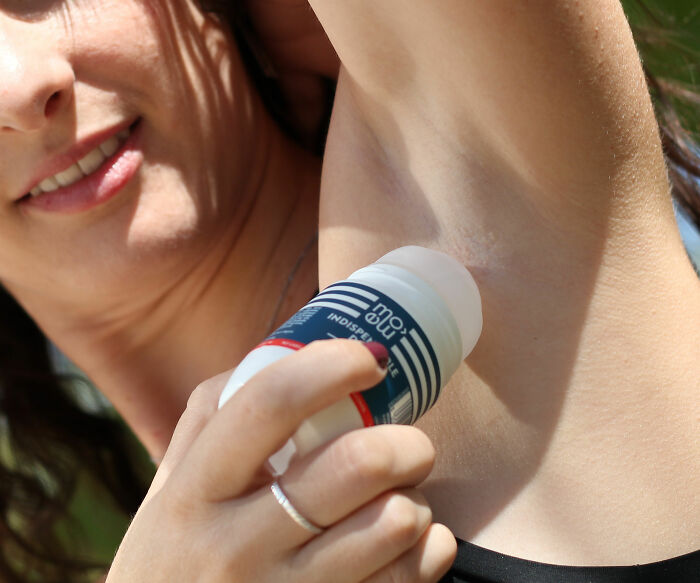 Some Asian people (like japanese or korean) do not emit body odor from their armpits and do not need deodorant.
These same people do not have sticky earwax.
How can you tell if you’re a non stinky armpit Asian? If you have gooey sticky earwax, keep using deodorant.
If your earwax is dry and crumbly, stop using deodorant for a week and have a trusted friend or partner give ya a sniff test after moderate exercise or at the end of the day. you probably are wasting money on deodorant.
Some Asian people (like japanese or korean) do not emit body odor from their armpits and do not need deodorant.
These same people do not have sticky earwax.
How can you tell if you’re a non stinky armpit Asian? If you have gooey sticky earwax, keep using deodorant.
If your earwax is dry and crumbly, stop using deodorant for a week and have a trusted friend or partner give ya a sniff test after moderate exercise or at the end of the day. you probably are wasting money on deodorant.
Your body will sacrifice hands and feet to keep your vital organs witb blood and fluid. This isnt just for hypothermia. It includes bad hearts and pumping blood, feet can turn black. Or dehydration, which I had during 3 weeks of glandular fever. My hands and feet stopped getting fluid and dried out they peeled layers
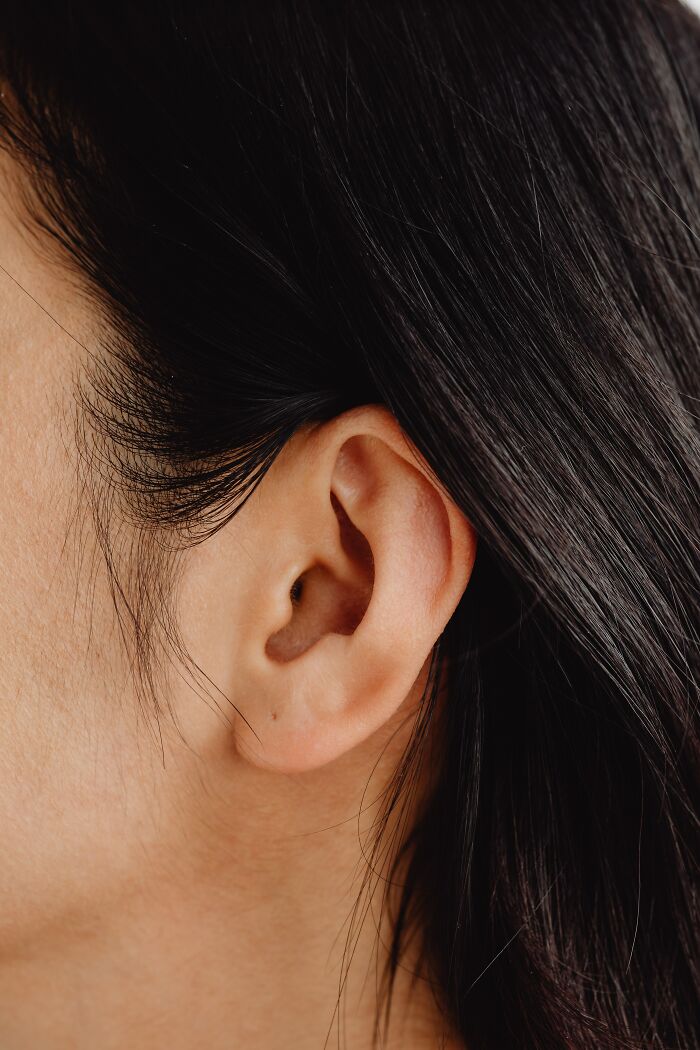 Some people will cough if they put something in one ear, a very small percentage will cough if something is in either ear. It is called Arnold’s ear-cough reflex.
Some people will cough if they put something in one ear, a very small percentage will cough if something is in either ear. It is called Arnold’s ear-cough reflex.
Most of our body never gets more than 20 years old. Our cells divide (in a process called mitosis) & then die. With the exception of your nervous system, the oldest organ in your body is the lungs, in terms of age of your cells. Your skin never gets more than a few weeks old; your mouth never gets more than a few days old. Essentially, the reason we age is not because the cells are old, but they lose their ability to perform functions as effectively as they go through the, mostly genetically determined, ageing process (your cells are only designed to divide a set number of times, due to structures called telomeres). It's a little more complicated than this, but I'm not writing a textbook, nor am I qualified to do so.
Then why do I feel so ancient, if nothing in my body is over 20 years old?
Sometimes your hair or eye colour may darken after you grow out of infancy.
Certainly pretty common with hair. I was born with nearly black hair but after that grew out (or wore off?) my hair grew back white blonde. In my twenties is darkened to pale gold; later on became what I'll call ash blonde - also known as mouse coloured :-(. Now it's purple but that's another story!
Attraction to another human is caused by their smell or natural musk - which is coded by the same genes as your immune system aka the major histocompatibility complex. Essentially, when you're super attracted to someone you're smelling their immune system. If theirs is vastly different in variation to yours, your subsequent offspring will have a varied immune system made up of both parents. In the olden times, this meant higher survival rates for the kiddos (now we have drastically better healthcare and neonatal care, as well as vaccines). Tbh, that might be the cause of so many infant deaths in the olden days when many people marrying their cousin and relatives etc - their immune system was too similar so the babies died in infancy when they encountered diseases. Super interesting fact - there are no such MHC studies done with LGBT+ participants (gay, lesbian, bisexual and asexual being very interesting sexualities to study from). As the MHC serves to produce viable offspring and homosexual couples cannot do this naturally, are they also heavily influenced by MHC in choosing a specific partner? I'd love to do a PhD on this but it's very resource intensive and you'll need a large population of LGBT+ participants who are willing to wear smelly shirts for three days as well as blood sample analysis :(
A lot of people think that you will gain arthritis from popping your knuckles. Actually, you are only releasing minor air bubbles. Nothing more. So pop away.
Some people are born with extra ribs called cervical ribs which grow from the C7 vertebrae in the neck. It's a weird and rare mutation that a lot of people don't even know they have, although it is also a cause of thoracic outlet syndrome, which is where pressure is applied to the nerves, veins and arteries running into the arms. It can be really painful, and in some rare cases can cause gangrene in the arms. If left untreated it can kill you if you're really unlucky. (source: I have the non-cervical rib induced variety)
Yeah my mam has this never knew until she was in her 30s. It causes her alot of pain
Our antipathy to the rotting egg smell of sulphur is actually our brains recognising the malodorous pathogen hydrogen sulfide which is released during decomposition of our bodies. It's been postulated we've retained the atavistic fear of the stench from the days of contagious diseases like tuberculosis, the disease persisted inside corpse days after death. It's difficult to suppress the impulse to embrace a loved one who's died and we discovered their bodies but our brains will invoke our aversion to sulphur in hope to deter you; it's less prevalent in today's world with the innovations in medicine and the disposal of decomposing cadavers is meticulously planned.
Most headaches are caused by tight neck muscles, which can be caused by a tight lower back or upper hamstrings. Some stretching and good posture does wonders for the body
Some headaches are caused by tense cervical muscles, many aren't. The Oxford Textbook of Headache Syndromes is over 500 pages long, and only a handful are due to muscle tension.
The Hyoid Bone is the only free floating bone in your body. It does not connect or articulate to any other bone in the human body and only has cartilage ligament, and muscle attachments in the neck. It is very small and is shaped like a U.
Eyes color isn't strictly based on recessive/dominant. That's a major incorrect oversimplification.
most animals have an average of 1 billion heartbeats in a lifetime, humans are the exception, with an average of 2 billion (with obvious exceptions)
Your brain mostly kinda makes up your field of vision. Receptors on the retina can only register the color of the light in the very middle of the retina, the fovea. The fovea is also the only place on the retina where the density of the light receptors is high enough that you can register a clear distinguished image, the rest is just kind of a blurry black-and-white mess. Also there are blood vessels that block the light reaching certain parts of the retina and the round shape of your eye will make the edge of your field of vision seem closer than the middle. Oh and because of the lens the image is displayed upside down. What you actually register is an blurry, upside-down, black-and-white image with vine-like black lines running through it (caused by the blood vessels) and only the middle part makes a small amount of sense. Your brain just makes the rest of it up.
The little white half moon shapes at the bed of your fingernails are called Lunulae which means ''Half Moon'' in Latin.
You can breathe through your ear. But it's not enough air that goes through there.
You have a dominant eye.
Archers know that. I have a simple little test (too lazy to type). If your right eye is dominant (most people) hold your bow in your left hand.
The dive reflex. When your face is submerged in chilled water and you hold your breath it causes your heart rate to lower and blood supply to be increased to vital organs such as the heart and brain. This is useful to help increase the amount of time you can hold your breath, but is also useful in helping to manage PSVT (paroxysmal super ventricular tachycardia) which is characterized by occasional bouts of high heart rate.
The cornea is the only part of the body without blood flow. It gets oxygen directly from the air. Humans are the only animals with a chin. The egg that you were created from existed before your mother was born. Straight hair comes out of around follicle, and curly hair comes out of an oval shaped follicle.
Primates have chins and chins are only something we have decided to name. It's just the front of the jaw, so pretty much all animals have them. Ours are just more prominent.
Vitality. You'd be surprised how much blood you can lose and fully recover reasonably quickly.
When people eat or rest, there is more blood flow going into the digestive system.
Despite us being the most complicated species on the planet (in many ways), we don't have the largest genome- not by a ***long*** shot. Compared to our paltry 3 billion base-pairs, species like *Amoeba dubia* that have ~670 billion base-pair genomes should, logically, be more complex, right? They should have ***way*** more genes, after all! **This is the C-value paradox: genome size does not correlate with organism complexity.** It is solved by the fact that humans have a much higher percentage of *regulatory elements-* DNA sequences that regulate other parts of the genome **instead** of coding for proteins- than any other organism. Just **1%** of our DNA codes for proteins- the other **99%** are these regulatory elements, creating unique patterns of activation among that 1%. This **patterning** has led to the extraordinary diversity of our organs and tissues, the incredible complexity of our brains, and our ability to survive the harsh environments of our world, despite being large, hot, and squishy.
 99.9999999% of your body is empty space. ... If we lost all the dead space inside our atoms, we would each be able to fit into a particle of dust, and the entire human species would fit into the volume of a sugar cube.
99.9999999% of your body is empty space. ... If we lost all the dead space inside our atoms, we would each be able to fit into a particle of dust, and the entire human species would fit into the volume of a sugar cube.
I know one. There's this phenomenon where intrusive thoughts of harming someone you love will slip into your brain at certain times, even though you would never do such a thing in a million years. For example, say you and your SO were standing on the edge of a cliff admiring the sunset, and suddenly you imagine yourself shoving them over the edge. Most people recoil from these imaginings, and some even suffer such extreme guilt from reoccuring bad thoughts they end up needing therapy, thinking there must be something wrong with them. Actually, it's perfectly normal, and in fact healthy! It's your brain's way of checking the environment for danger and making a mental note of what NOT to do. It's your instinct kicking in to protect those you love. For me, it's whenever I'm holding something heavy around my dogs. I imagine dropping it on top of them, which makes me sick, and if I actually did it, I would cry. But I know it's just my brain's way of locking onto potential danger that could happen to small creatures whose safety I have anxiety over. It's just my brain saying, "Hey, watch out for that!"
That happens to me when I'm driving: I think of swerving into the median or oncoming car. I would NEVER, but it's comforting to know it's normal.
Load More Replies...As always, some of these are scientific facts, but a lot of them are things that people have made up because they've heard it from someone. Question everything, don't just believe what anyone says.
Yes. It should be mandatory to at least link 1 source to support your "facts". Much is either just an urban legend to begin with or really outdated, long since disproved studies
Load More Replies...Most adults cannot drink milk. The 80% of the population of Finland CAN drink milk without any problem. I am one of them. Thank God for my Finnish heritage!
I know a cool one... when you have heart disease and your arteries fill up with plaque most people have a heart attack and die without treatment (bypass surgery). Some peoples hearts produce collaterals which are new blood vessels that route blood flow around these blockages protecting the heart from damage due to lack of blood flow (this is called ischemia). So some peoples body's naturally bypass on their own...they still don't know why some people have this ability or why others don't....the human body is fascinating!
I know one. There's this phenomenon where intrusive thoughts of harming someone you love will slip into your brain at certain times, even though you would never do such a thing in a million years. For example, say you and your SO were standing on the edge of a cliff admiring the sunset, and suddenly you imagine yourself shoving them over the edge. Most people recoil from these imaginings, and some even suffer such extreme guilt from reoccuring bad thoughts they end up needing therapy, thinking there must be something wrong with them. Actually, it's perfectly normal, and in fact healthy! It's your brain's way of checking the environment for danger and making a mental note of what NOT to do. It's your instinct kicking in to protect those you love. For me, it's whenever I'm holding something heavy around my dogs. I imagine dropping it on top of them, which makes me sick, and if I actually did it, I would cry. But I know it's just my brain's way of locking onto potential danger that could happen to small creatures whose safety I have anxiety over. It's just my brain saying, "Hey, watch out for that!"
That happens to me when I'm driving: I think of swerving into the median or oncoming car. I would NEVER, but it's comforting to know it's normal.
Load More Replies...As always, some of these are scientific facts, but a lot of them are things that people have made up because they've heard it from someone. Question everything, don't just believe what anyone says.
Yes. It should be mandatory to at least link 1 source to support your "facts". Much is either just an urban legend to begin with or really outdated, long since disproved studies
Load More Replies...Most adults cannot drink milk. The 80% of the population of Finland CAN drink milk without any problem. I am one of them. Thank God for my Finnish heritage!
I know a cool one... when you have heart disease and your arteries fill up with plaque most people have a heart attack and die without treatment (bypass surgery). Some peoples hearts produce collaterals which are new blood vessels that route blood flow around these blockages protecting the heart from damage due to lack of blood flow (this is called ischemia). So some peoples body's naturally bypass on their own...they still don't know why some people have this ability or why others don't....the human body is fascinating!

 Dark Mode
Dark Mode 

 No fees, cancel anytime
No fees, cancel anytime 


